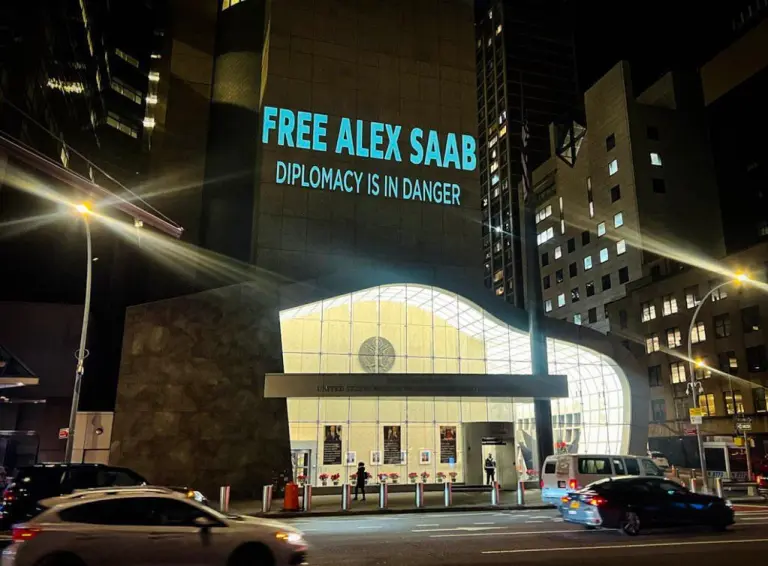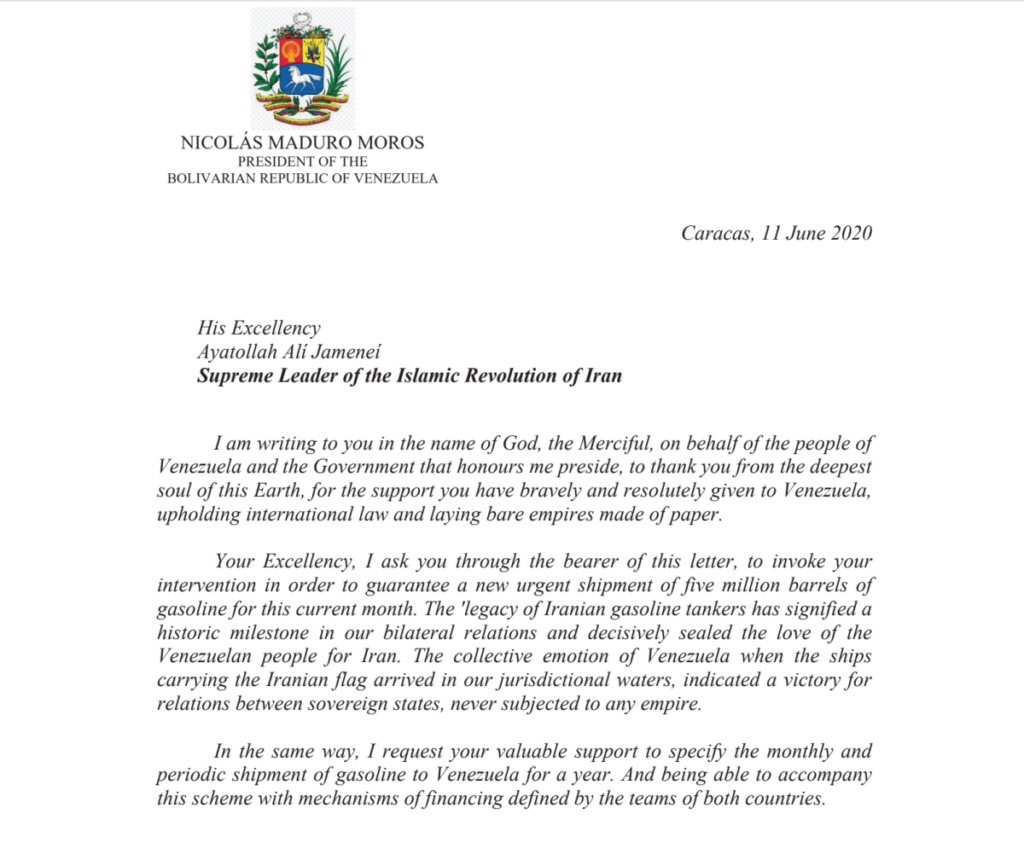US Trial of Venezuela’s Alex Saab Exposes Diplomatic Espionage
IN FOCUS, 2 Jan 2023
Anya Parampil | The Grayzone - TRANSCEND Media Service
12 Dec 2022 – Reporting from inside the federal courtroom where the US is prosecuting Venezuelan diplomat Alex Saab, we learn of disturbing acts of diplomatic espionage. Saab’s advocates insist he is imprisoned for violating Washington’s economic blockade.
Authorities in Cape Verde opened official government communications which Venezuela intended for Iran, including a sealed letter sent by Venezuelan President Nicolás Maduro to Iran’s Supreme Leader Ayatollah Ali Khamenei, following the arrest of Venezuelan diplomat Alex Saab in June of 2020. The revelations came to light during a December 12 evidentiary hearing in Saab’s federal trial in Miami, Florida, focused on determining whether or not his claims to diplomatic immunity are legitimate.
The Grayzone is attending Saab’s trial in the Wilke Ferguson federal courthouse in downtown Miami. The US Department of Justice has accused the Venezuelan diplomat of conspiracy to commit money laundering, painting him as a corrupt business asset of a socialist government Washington aims to topple. But Saab and his advocates insist his only crime was violating sanctions to provide affordable food and medicine for a population suffering under a crushing US economic blockade. Saab’s trial is therefore a critical test of the legitimacy of the US sanctions regime targeting nations from Venezuela to Iran.
On Monday, Cape Verdean lawyer Dr. Florian Mandl testified that when he obtained Saab’s belongings in July of 2020, he discovered that three separate communications his client had been tasked with delivering to Iranian government officials on behalf of the Venezuelan President’s and Vice President’s offices had been opened by an unknown culprit. The documents consisted of a letter from President Maduro addressed to Ayatollah Khamenei as well as two letters from Venezuela’s Vice President Delcy Rodríguez: one addressed to an advisor to her Iranian counterpart, and another addressed to Iran’s then-Minister of Agriculture Kazem Khavazi.
According to Mandl, Cape Verdean law requires authorities to ask prisoners to designate a contact to pick up their belongings immediately after their detention. Yet he asserted that no one ever bothered to ask Saab for such a contact following the diplomat’s arrest on June 12, 2020, and said he only obtained Saab’s luggage after he launched a personal campaign to recover his client’s possessions on July 21 of that year. Even so, Cape Verdean authorities did not hand over Saab’s belongings until July 22.
Mandl said he opened Saab’s suitcases after taking them home later that same day. He described the contents inside as highly “disorganized” and recalled finding three envelopes marked with Venezuelan government seals scattered amongst Saab’s clothing. Mandl expressed shock when recalling the moment he realized the envelopes had already been opened, particularly when he discovered one of the documents was a heartfelt letter President Maduro had written to Iran’s Supreme Leader.
Prior to Mandl’s testimony, Saab’s private security guard, Juan Carlos Arrieche, testified that President Maduro asked him to personally deliver the documents to Saab on the night of June 11, 2020. Saab attended a meeting with Iranian diplomats at the Venezuelan President’s residence, Miraflores Palace, that same evening. Saab set out for Iran the following day, but was intercepted by police when his plane stopped to refuel on the Cape Verdean island of Sal that afternoon.
Arrieche recalled that the diplomatic communications were stored in Saab’s personal carry-on briefcase when he boarded a chartered flight to Tehran on the morning of June 12, and that the envelopes were still sealed at that time.
In his letter to Ayatollah Khamenei, Maduro thanked Iran for delivering light crude and petroleum-industry related chemicals to Venezuela throughout May of 2020. The shipments, which were the result of a deal Saab brokered with Iran to help end a months-long oil crisis in Venezuela, enabled Caracas to double its oil output the following year, flouting the US sanctions regime intended to deny it of revenue. Venezuela paid for the Iranian petrol products with gold.
Read the complete correspondence between Venezuelan President Nicolas Maduro and Ayatollah Ali Khamenei here.
Additionally, Maduro requested Ayatollah Khamenei’s “support to specify the monthly and periodic shipment of gasoline to Venezuela for a year.”
“I am writing to you in the name of God, the Merciful, on behalf of the people of Venezuela and the Government that honors me preside, to thank you from the deepest soul of this Earth, for the support you have bravely and resolutely given to Venezuela, upholding international law and laying bare empires made of paper,” Maduro wrote.
TO CONTINUE READING Go to Original – thegrayzone.com
Tags: Alex Saab, Anglo America, Bullying, Corruption, Diplomacy, Hegemony, Imperialism, Justice, Latin America Caribbean, Rogue states, South America, USA, Venezuela
DISCLAIMER: The statements, views and opinions expressed in pieces republished here are solely those of the authors and do not necessarily represent those of TMS. In accordance with title 17 U.S.C. section 107, this material is distributed without profit to those who have expressed a prior interest in receiving the included information for research and educational purposes. TMS has no affiliation whatsoever with the originator of this article nor is TMS endorsed or sponsored by the originator. “GO TO ORIGINAL” links are provided as a convenience to our readers and allow for verification of authenticity. However, as originating pages are often updated by their originating host sites, the versions posted may not match the versions our readers view when clicking the “GO TO ORIGINAL” links. This site contains copyrighted material the use of which has not always been specifically authorized by the copyright owner. We are making such material available in our efforts to advance understanding of environmental, political, human rights, economic, democracy, scientific, and social justice issues, etc. We believe this constitutes a ‘fair use’ of any such copyrighted material as provided for in section 107 of the US Copyright Law. In accordance with Title 17 U.S.C. Section 107, the material on this site is distributed without profit to those who have expressed a prior interest in receiving the included information for research and educational purposes. For more information go to: http://www.law.cornell.edu/uscode/17/107.shtml. If you wish to use copyrighted material from this site for purposes of your own that go beyond ‘fair use’, you must obtain permission from the copyright owner.

